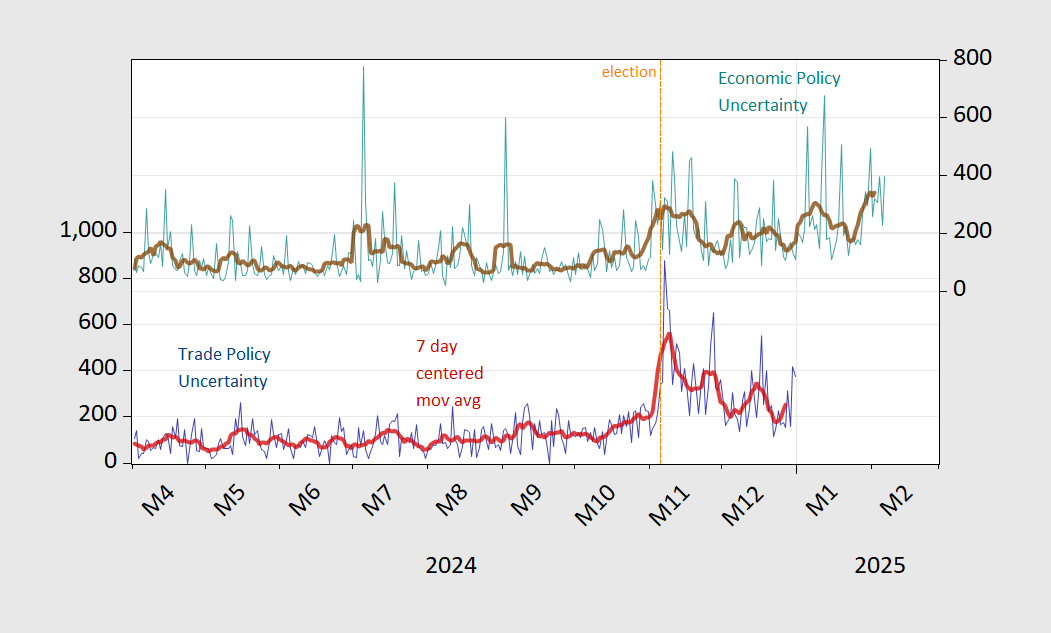…or I wonder how “reciprocal tariffs” will affect economic policy uncertainty measures.
Figure 1: EPU (green, right scale), 7 day centered moving average Economic Policy Uncertainty (brown, right scale), Trade Policy Uncertainty (green, left scale), 7 day centered moving average EPU (red, left scale). Source: policyuncertainty.com, matteoiacoviello.com.
Who knows what “reciprocal tariffs” are. The language for the 2018 draft Fair Trade and Reciprocal Tariff Act is here. It seems that it’s something like the same tax rate is applied to widgets coming to the US from country X as country X has a tax on widgets coming in from the US… (or maybe it’s the tax revenue).

One thing reciprocal tariffs, or any kind of tariff, means is higher domestic prices. Across-the-board tariffs mean across-the-board price increases – aka inflation.
The two-year TIPS yield is up 8 basis points today.
Politico has a history of the last purge of government employees, during the McCarthy era – which is to say, during the Eisenhower asministration:
https://www.politico.com/news/magazine/2025/02/06/government-workers-purge-1950s-communism-00202336
Politico notes that Eisenhower was the first Republican president in 2 decades. That is rarely mentioned as an important part of the context for the suspicion, and purges, of government workers, but it’s not hard to see a parallel with the loyalty fetish of our current rapist-in-chief. The New Deal, the vast expansion of government, the success of the public sector in guiding the nation out of the Great Depression and to victory in WWII, had all occurred while the GOP was out of power. The vastly expanded government workforce simy had to be rotten, because they had worked for Democrats during a period in which Democrats led government to great success.
From the article:
“Over… four months, 1,456 federal employees were fired, despite the fact that no one was ever found to be involved in espionage.”
And this:
“At a time of intense geopolitical competition, the United States kneecapped itself, removing thousands of valuable employees and forcing those who remained into unhappy conformity. It is hard not to see the same mistake being repeated today.”
Lest Politico’s writer, Clay Risen, be accused of partisan bias, I’ll point out that Risen mentioned Truman’s role in ordering personnel investigations before the purge under Eisenhower. I’ll also note that the suggestion the partisan distrust underpinned Eisenhower’s purge is mine, not Risen’s.